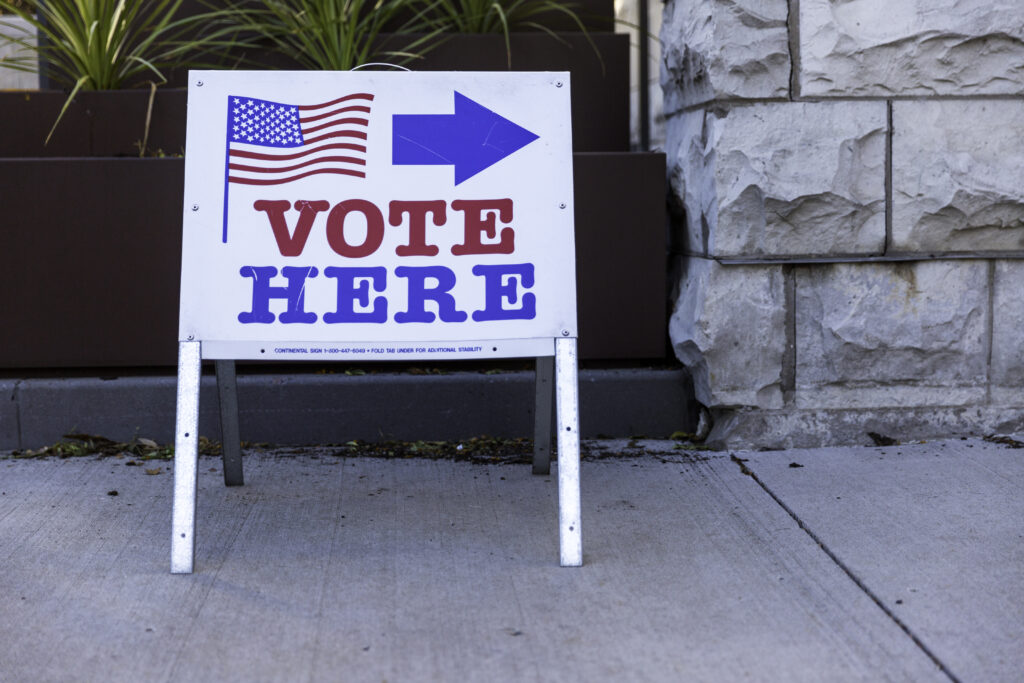| RFID and Drug Safety |
|---|
|
Issue
Solution
Results
Source: Progress & Freedom Foundation |
In October, California Gov. Arnold Schwarzenegger (R) vetoed a bill that would have implemented four years of legislated technology, processes, and procedures to ensure the privacy and security of personal information on public documents incorporating the use of Radio Frequency Identification (RFID) by any state, county, or municipal government.
In his veto message, Schwarzenegger called the legislation “premature,” “overbroad,” and poised to “unduly burden the numerous beneficial new applications” of RFID. Those assessments are shared by the RFID industry as well as many free-market proponents about much state RFID legislation. But many privacy advocates say RFID must be regulated now to protect consumers from its potentially invasive uses in the future.
RFID at Work
In a basic RFID system, microchips with tiny antennas, known as RFID tags, are attached to merchandise, boxes, pallets, etc. Electronic RFID readers signal the tags, which then transmit the data encoded on them to the reader and into a computer system, such as a database. Because RFID readers don’t need to “see” a tag, an RFID tag can be encased in plastic or a cardboard box or even under skin.
Highway electronic tolling systems use RFID, as does Exxon’s SpeedPay program. Pfizer Pharmaceuticals is putting RFID tags on individual Viagra bottles to ensure their authenticity. Makers of everything from cars to potato chips are using RFID to track parts and supplies from manufacturing through delivery.
RFID proponents say widespread RFID use will lower consumer costs, improve health care quality and efficiency, increase safety in the nation’s produce and meat supply, and even improve national security by making it easier and faster to collect critical information and to trace the contents and path of anything from a crate of produce to a massive shipping container.
Detractors say RFID systems are not secure and could compromise personal privacy, either by inadvertently releasing personal data or by surreptitiously collecting it. Others fear RFID could be used to track individuals’ movements. Many of the more than 50 RFID bills state legislators have introduced in the past two years reflect these worries.
A Reactionary Rush?
The American Legislative Exchange Council (ALEC) and RFID law specialists McKenna, Long & Aldridge catalogued those bills in an October 2006 presentation, RFID State Legislative Activity. Many of the bills call for retailers to inform consumers they’re purchasing RFID-tagged items. Other bills would prohibit any entity, especially employers, from requiring individuals to be implanted with RFID tags. Wisconsin has already passed such a law.
The ALEC report characterizes such legislation as “a reactionary rush” before RFID security and privacy issues have been fully addressed. Others agree.
“Why do you need to pass legislation for a problem that doesn’t exist?” asked Dan Caprio, president of the Progress & Freedom Foundation. “It’s very alarmist.”
Caprio pointed out that RFID is used primarily in the supply chain, where personal data is not an issue. He said legislators are trying to write laws for applications that don’t yet exist. Further, he said current laws–such as informed consent opt-in requirements for medical procedures–already apply to RFID. Finally, Caprio said the RFID market itself is addressing privacy and security practices in response to its customers’ needs.
“Instead of passing legislation out of fear and uncertainty, states need to understand RFID technology, what it’s capable of and its benefits,” said Caprio.
Some state legislation–such as a pending bill in Illinois calling for RFID use in hospitals for tracking patients and body parts, and a bill passed in Indiana mandating a system to track drugs for pharmacies and distributors–does recognize the broad range of RFID capabilities.
RFID supporters point to such programs as examples of RFID’s society-improving potential. Certainly businesses are buying into RFID: Market size estimates differ considerably, but all put the current and future RFID market at billions of dollars assuming the technology is permitted to grow.
Sharon J. Watson ([email protected]) is a free-lance writer.
For more information …
The October 2006 presentation by the American Legislative Exchange Council, RFID State Legislative Activity, is available through PolicyBot™, The Heartland Institute’s free online research database. Point your Web browser to http://www.policybot.org and search for document #20144.



